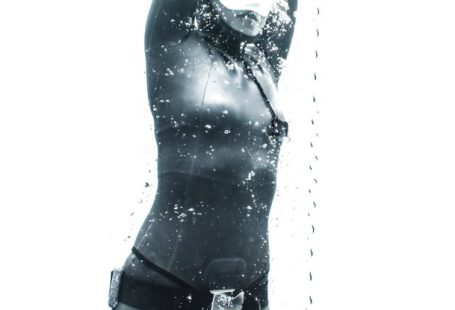Venturing underwater can be an exhilarating experience, but it comes with its own set of risks. From unexpected currents to equipment malfunctions, divers must always be prepared for the unexpected. One of the most crucial skills for any diver to possess is the ability to remain calm and collected in the face of danger. In this article, we will explore some essential survival tips to help you avoid panic underwater and ensure a safe diving experience.
Understanding the Importance of Remaining Calm
When faced with a potentially dangerous situation underwater, panic is your worst enemy. It can cloud your judgment, impair your decision-making abilities, and ultimately lead to disastrous consequences. By learning how to stay calm under pressure, you can increase your chances of survival and effectively manage challenging situations.
Control Your Breathing
One of the first things to do when you feel a surge of panic is to focus on your breathing. Rapid, shallow breaths can escalate feelings of anxiety and panic. Instead, take slow, deep breaths to help calm your mind and body. Practice deep breathing techniques regularly to build a natural response to stress and anxiety.
Stay Positive and Visualize Success
Maintaining a positive mindset can make a world of difference in a crisis. Instead of dwelling on negative thoughts or worst-case scenarios, visualize a successful outcome. Envision yourself overcoming the challenge at hand and focus on positive affirmations to boost your confidence and resilience.
Stay Mindful of Your Surroundings
Being aware of your environment is essential for effective problem-solving underwater. Stay mindful of your surroundings, monitor your depth, air supply, and dive buddy’s location. By staying present and attentive, you can anticipate potential risks and take proactive measures to address them before they escalate.
Use Underwater Signaling Devices
In situations where verbal communication is impossible, signaling devices can be lifesaving tools. Carry a whistle, signal mirror, or surface marker buoy to attract attention or communicate distress signals to your dive buddy or the surface support team. Practice using these devices before your dive to ensure you are familiar with their operation in an emergency.
Stay Close to Your Dive Buddy
Diving with a buddy is a fundamental safety practice that can greatly reduce the risks associated with underwater emergencies. Your dive buddy is your lifeline in times of need, providing assistance and support when you need it most. Stay close to your buddy, maintain visual contact, and establish clear communication signals before entering the water.
Prepare for Equipment Malfunctions
Equipment malfunctions can happen unexpectedly, but being prepared can help you handle them effectively. Familiarize yourself with your gear, perform regular maintenance checks, and carry spare parts or backup equipment when possible. Practice emergency procedures, such as regulator recovery and mask clearing, to build confidence in your ability to manage equipment failures.
Seek Professional Training and Certification
Proper training and certification are essential for safe diving practices. Enroll in reputable dive courses to learn essential skills, safety protocols, and emergency procedures. Regularly refresh your knowledge and skills through continuing education courses to stay up-to-date with the latest advancements in diving practices and equipment.
Conclusion: Embracing a Calm and Prepared Mindset
Navigating the underwater world comes with its own set of challenges, but with the right mindset and preparation, you can mitigate risks and ensure a safe and enjoyable diving experience. By mastering the art of staying calm under pressure, practicing essential skills, and staying vigilant of your surroundings, you can confidently explore the wonders beneath the surface while prioritizing your safety and well-being. Remember, preparation is key, and a calm and collected mindset can be your greatest asset in times of crisis.





